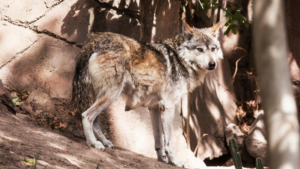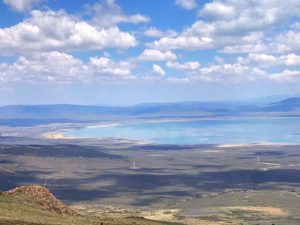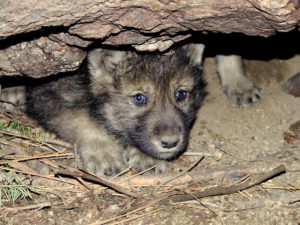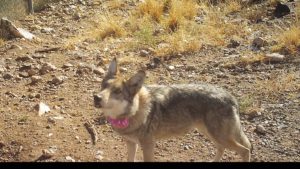For Immediate Release, January 15, 2019
Contacts:
Andrea Santarsiere, Center for Biological Diversity, (303) 854-7748,
asantarsiere@biologicaldiversity.org
Larry Campbell, Friends of the Bitterroot, (406) 821-3110, lcampbell@bitterroot.net
Arlene Montgomery, Friends of the Wild Swan, (406) 886-2011, arlene@wildswan.org
Gary Macfarlane, Friends of the Clearwater, (208) 882-9755,
gary@friendsoftheclearwater.org
Josh Osher, Western Watersheds Project, (406) 830-3099,
josh@westernwatersheds.org
MISSOULA, Mont.— Five conservation groups filed a rulemaking petition today asking the Montana Fish and Wildlife Commission to ban trapping of Northern Rockies fishers along the Montana-Idaho border. Trapping is a serious threat to this small and isolated fisher population.
“Too many Northern Rockies fishers have died an untimely death in Montana traps in the past decade,” said Andrea Santarsiere, a senior attorney at the Center for Biological Diversity. “It’s time for the state to protect these imperiled carnivores instead of caving to the wishes of a few trappers.”
From 2002 to 2016, 186 fishers were reportedly killed in traps set for other species in Idaho and Montana, while 243 fishers in Idaho were released alive or in “unknown” condition. Montana does not record information on fishers trapped but released alive.
Scientists have long considered trapping a grave threat to Northern Rockies fishers, but Montana still allows the practice. Idaho prohibits intentional fisher trapping.
“The state of Montana has a constitutional obligation to protect and preserve our natural resources for present and future generations,” said Josh Osher, Montana director for Western Watersheds Project. “The trapping of the Northern Rockies fisher threatens the continued survival of this imperiled species and must be stopped immediately.”
Northern Rockies fishers are limited to a single, small population in the Cabinet and Bitterroot mountains along the border of western Montana and northern Idaho.
“Fishers belong in the Bitterroot ecosystem,” said Larry Campbell of Friends of the Bitterroot. “Their numbers are dwindling, and their habitat is increasingly being destroyed. Stopping the loss of individuals to trapping is the most direct and cost-effective step to reducing the threat of fisher extirpation.”
These catlike carnivores are opportunistic predators, and one of very few species that successfully prey upon porcupines. Neither Montana nor Idaho has accurate fisher population estimates.
“Fishers are imperiled in the northern Rockies from habitat destruction coupled with trapping,” said Arlene Montgomery, program director at Friends of the Wild Swan. “The state of Montana should be doing all it can to protect its rare wildlife, not facilitate its demise.”
Fishers have slow reproductive rates, so it can take them a long time to rebound from high mortality. Even though scientists have found that fishers are extremely vulnerable to trapping, the number of fishers reportedly caught in traps has recently dropped. This may indicate a decline in the fisher population.
“Idaho and Montana share a unique, native fisher population in the Clearwater, Bitterroot and Clark Fork River Basins,” said Gary Macfarlane, the executive director of Friends of the Clearwater. “Trapping in Montana will harm fishers in Idaho and hamper the recovery of this rare species.”
Today’s petition was filed by the Center for Biological Diversity, Friends of the Bitterroot, Friends of the Wild Swan, Friends of the Clearwater and Western Watersheds Project. The wildlife commission has 60 days to respond.
—
The Center for Biological Diversity is a national, nonprofit conservation organization with more than 1.4 million members and online activists dedicated to the protection of endangered species and wild places.
Friends of the Bitterroot is a 31-year-old grassroots conservation organization working to protect wildlife and wildland habitat in the Northern Rockies region.
Friends of the Clearwater — Keeping the Clearwater Basin wild since 1987.
Western Watersheds Project works to protect and restore watersheds and wildlife on public lands across the American West.






